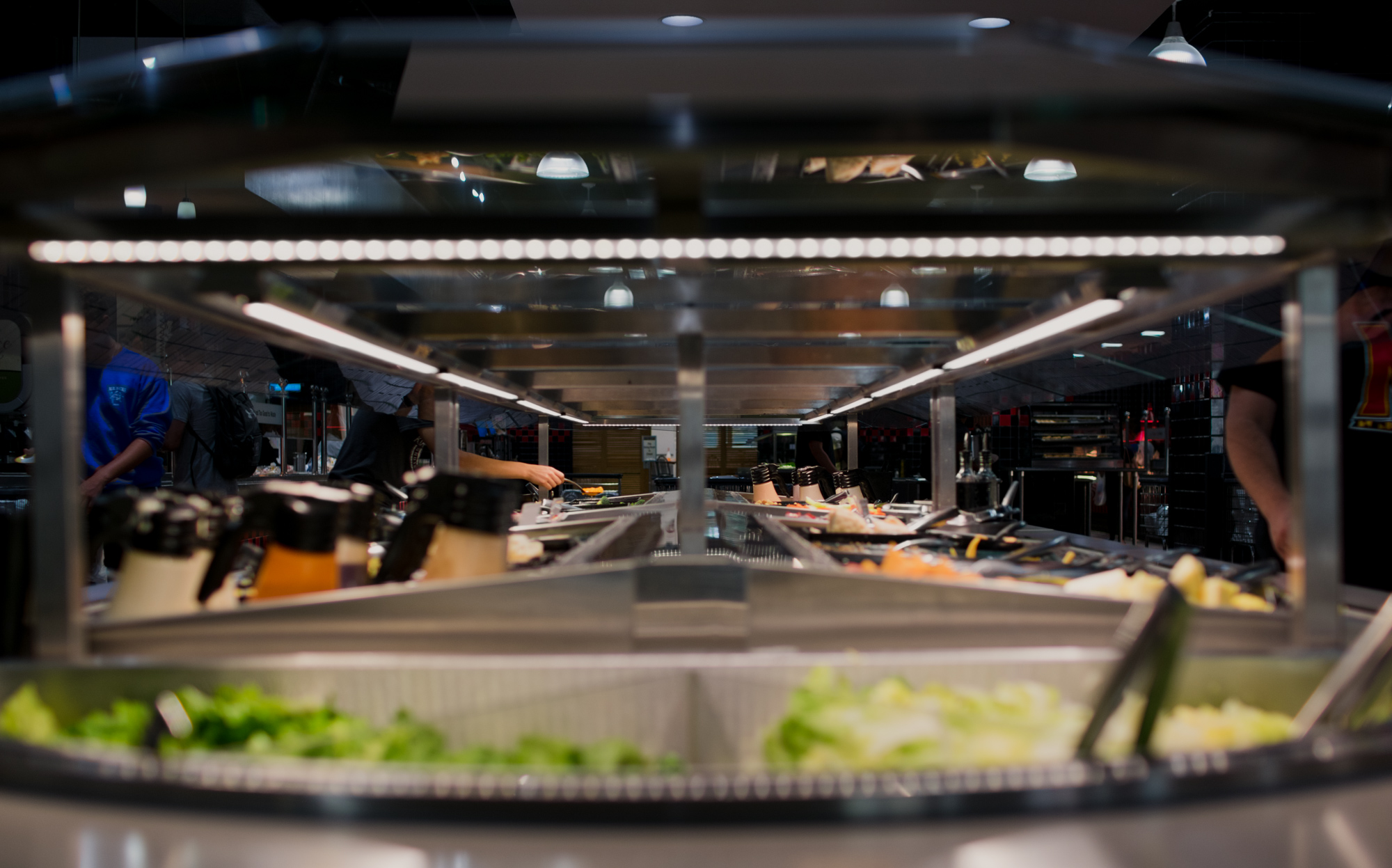Views expressed in opinion columns are the author’s own.
Climate change is destroying our planet, and one of the greatest accelerating factors is what we eat. While over 80 percent of all farmland is used to raise livestock, those same animals account for only 18 percent of dietary calories.
Animal agriculture uses a disproportionate amount of resources. Beyond land use alone, consumers must consider the embodied energy of a burger — all of the resources that go into processing, packaging and shipping the meat produced after the animal is slaughtered. Eating a plant-based diet is the most efficient way to rapidly reduce contribution to climate change, and the University of Maryland’s dining halls are slow to take adequate action.
This fall, this university became the first to join the Cool Food Pledge — a program designed to help organizations lower their food-related greenhouse gas emissions by transitioning to more sustainable food service. The dining halls now offer more plant-based and vegan food options, even items like vegan pancakes. But it’s not enough.
Reducing greenhouse gas emissions is not achievable through the introduction of more plant-based options alone. The dining halls must also work toward larger reduction of animal products being served. The operation should lean more toward replacement than expanding options.
Students for the Ethical Treatment of Animals, of which I am a member, has contacted Dining Services and met with officials to discuss the potentially implementing “Meatless Mondays” — a common practice among individuals, groups and organizations alike. Many who take part in Meatless Mondays or similar programs are working toward a more plant-based diet, trying to eat more vegetables or simply cutting back on their meat intake.
Meatless Mondays are a simple way to compel participants to eat cleaner and think about their dietary choices. While SETA is largely motivated by animal rights over climate action, the two are deeply intertwined, and embracing a student-led Meatless Monday campaign could be very beneficial for Dining Services’ long-term environmental goals.
Yet, the dining halls are reluctant. They won’t take meat off the menu, even for one day per month, without adequate proof of student interest. In response, SETA is working on a student petition to prove that the support is present. But why should students have to prove they can eat vegetarian for one meal each month to an organization that has pledged to reduce its carbon footprint — something most achievable by reducing animal products on the menu?
While the Cool Food Pledge’s website states that its program includes steps for implementation of less-polluting food plans, if the goal is to reduce pollution, involved organizations should take any steps they can toward this end. The dining halls should live up to their pledge on a more fundamental level.
From a financial standpoint, it makes sense. A business’s choices should reflect the wishes of its customer base. But having signed the pledge, Dining Services should endorse student suggestions which benefit its own emissions goals. The university’s dining halls should embrace Meatless Mondays as another change toward fulfilling their pledge to improve sustainability.
Lexie Werner is a senior English major. She can be reached at lexiew@terpmail.umd.edu.



